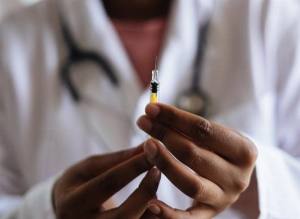Human papillomavirus (HPV): Why get vaccinated?
Published Jan 21, 2021 • By Candice Salomé
There are more than a hundred HPV viruses (human papillomas) that can infect skin or genital mucosae. These viruses are transmitted quickly during sexual intercourse over the contact of infected mucosae or skin. However, there is a vaccine.
Is vaccination indispensable? Who can get vaccinated? When do you have to do it? What are the types of vaccines?
We tell you everything in this article!

Why get vaccinated?
To this day, about 80% of the world population is or has been infected by one or several of the HPV viruses. Healing is spontaneous in 90% of cases, but in 10% of them, the infection lasts.
Among these viruses, HPV16 and HPV18 are the most dreaded because they are responsible for the majority of the 13,000 cases of cervical cancers detected each year in the USA Additionally, in many cases of vaginal, penis, anal and throat cancers, an HPV infection is also found.
Vaccination has been authorized since 2006 by the European Commission and would allow the disappearance of or a drastic decrease in these pathologies. Initially recommended for all girls aged 11 to 14, this vaccine allows preventing some human papillomavirus infections, because some viruses transmitted sexually can lead to benign genital warts, but can also cause cervical cancer.
Who can get vaccinated?
Vaccination against HPV infections essentially concerns young girls between the age of 11 and 14. However, since January 2021, recommendations also concern young boys between 11 and 14. Two to three injections are needed according to the vaccine used and the age of the patient.
Additionally, in a context of catch-up vaccination, vaccination is recommended for young boys and girls, and for young men and women aged 15 to 19.
Performed before the beginning of the sex life, the vaccination has an efficacy of almost 100%. However, many researches have shown that the vaccine's efficacy decreased when the patients had already been infected by an HPV virus.
*When a vaccination is performed because the patient has not received the doses of vaccines for which they are eligible.
Specific recommendations
Vaccination against HPV is also recommended in the following cases:
- In immunocompromised boys and girls until the age of 19, and from the age of 9 for potential solid organ transplant recipients (heart, lung, liver, intestine with a risk infectious risk).
- Until the age of 26 for men who have had sexual relations with other men.
What are the different types of vaccines?
Three vaccines are available:
- Gardasil® protects from the two high risk HPV infections (HPV 16 and 18) and against two HPVs responsible for about 90% of genital warts.
- Cervarix® protects against HPV 16 and 18.
- Gardasil®9 protects against HPV 6, 11, 16, 18, 31, 33, 45, 52 and 58.
HPV 16 and 18 are the most frequent oncogene HPV.
HPV 6 to 11 cause genital condyloma warts but have a low carcinogenic potential.
The vaccination plan
Gardasil®:
- vaccination started between the ages of 11 and 13: 2 doses with six months in between.
- vaccination started between the ages of 14 and 19: 3 doses administered following a plan of 0, 2 and 6 months.
- vaccination for men who had sexual relations with men until the age of 26: 3 doses administered following a plan of 0, 2 and 6 months.
Cervarix®:
- vaccination started between the ages of 11 and 14: 2 doses with six months in between.
- vaccination started between the ages of 15 and 19: 3 doses administered following a plan of 0, 1 and 6 months.
Gardasil 9®:
- vaccination started between the ages of 11 and 14: 2 doses with six to thirteen months in between.
- vaccination started between the ages of 15 and 19: 3 doses administered following a plan of 0, 2 and 6 months.
- vaccination for men who had sexual relations with men until the age of 26: 3 doses administered following a plan of 0, 2 and 6 months.
Any new vaccination must be initiated with Gardasil 9® for young men and women who have not been previously vaccinated.
How effective is the vaccine?
The Cochrane Collaboration, a network of independent experts, published a large study on the efficacy of the papillomavirus vaccine.
According to this study, vaccination allows a significant decrease of precancerous lesions associated with the virus. Researchers have analyzed the data of 26 studies performed in many countries on more than 73,000 women, aged 15 to 45, with a follow-up lasting 6 months to 8 years.
Among the patients, 1.6% of women who received placebo had developed precancerous lesions associated with HPV 16 and 18, versus only 0.2% of vaccinated women. The vaccine therefore allowed avoiding 99% of the precancerous lesions cases.
However, since the vaccine against papillomavirus infections only protects against 70% of HPVs involved in cervical cancers, vaccination does not replace smear test. From the age of 25 years old, all women, whether vaccinated or not, must undergo a regular smear test (every 3 years).
Was this article helpful to you?
Share your thoughts and questions with the community in the comments below!
Take care!

 Facebook
Facebook Twitter
Twitter


